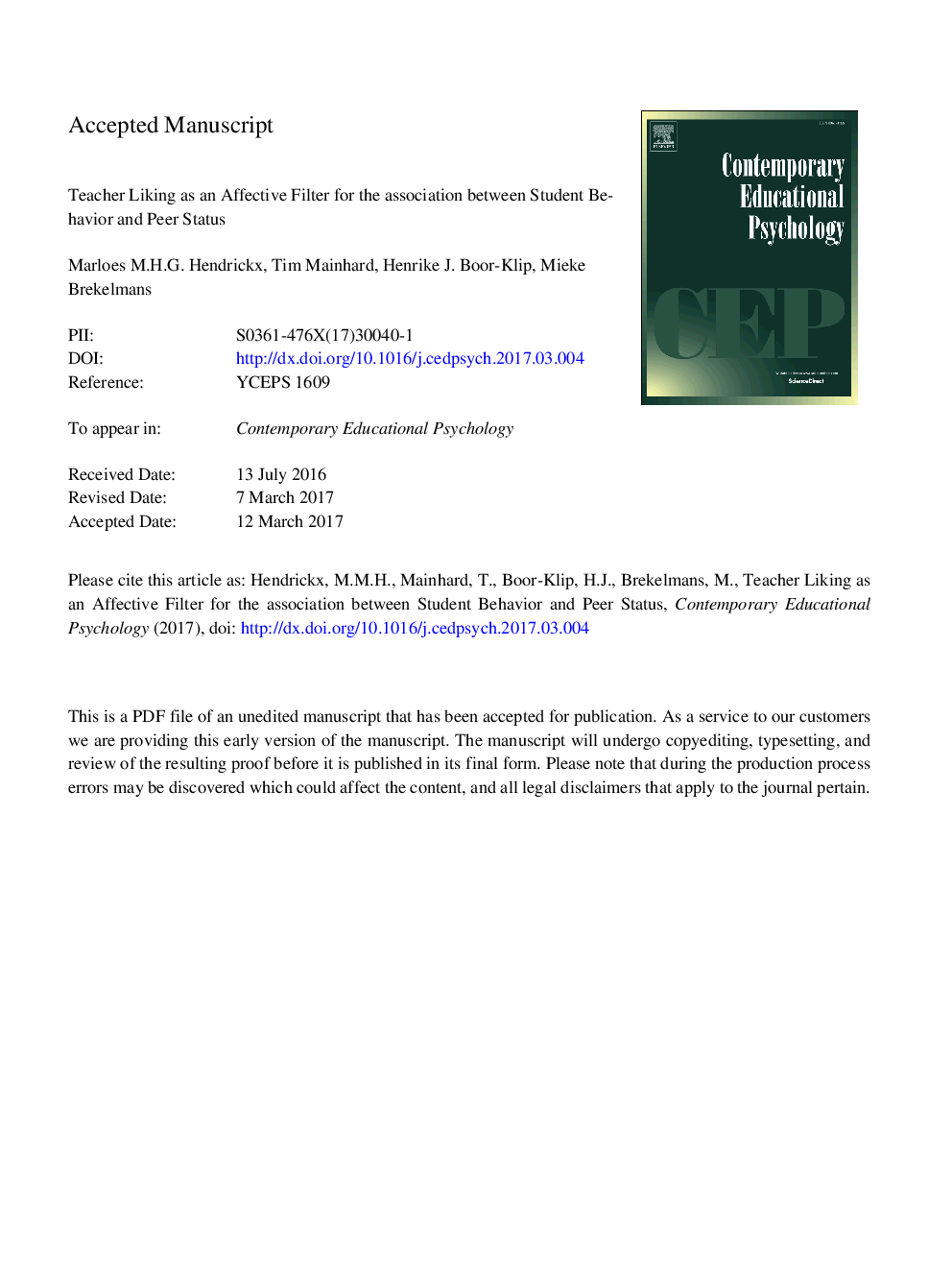| Article ID | Journal | Published Year | Pages | File Type |
|---|---|---|---|---|
| 4937907 | Contemporary Educational Psychology | 2017 | 51 Pages |
Abstract
This study investigated how peer perceptions of teacher liking and disliking for a student shape students' social cognitions by moderating associations between the student's peer-perceived social behavior and peer liking and disliking status. We studied individual teacher liking and disliking as well as classroom norms as moderators of individual and classroom-level behavior-status associations. Peer nominations of (dis)liking, being (dis)liked by the teacher, and prosocial and aggressive behavior were gathered from 1454 students (Mage = 10.60) in 58 fifth-grade classes in the Netherlands. Results from multilevel analyses showed the teacher made a difference in particular for those students who were at-risk of low peer status, that is, those students who were perceived by many of their peers to show aggressive behavior and by few to show prosocial behavior. These students were disliked less and liked more when they were perceived by peers to be less disliked and more liked by the teacher. Furthermore, the amount of disliking associated with overt and relational aggression differed across classrooms, depending on norms of teacher liking. These findings may help teachers to understand and improve an individual student's peer status, and alter the behavior-status dynamics in their class.
Keywords
Related Topics
Social Sciences and Humanities
Psychology
Applied Psychology
Authors
Marloes M.H.G. Hendrickx, Tim Mainhard, Henrike J. Boor-Klip, Mieke Brekelmans,
